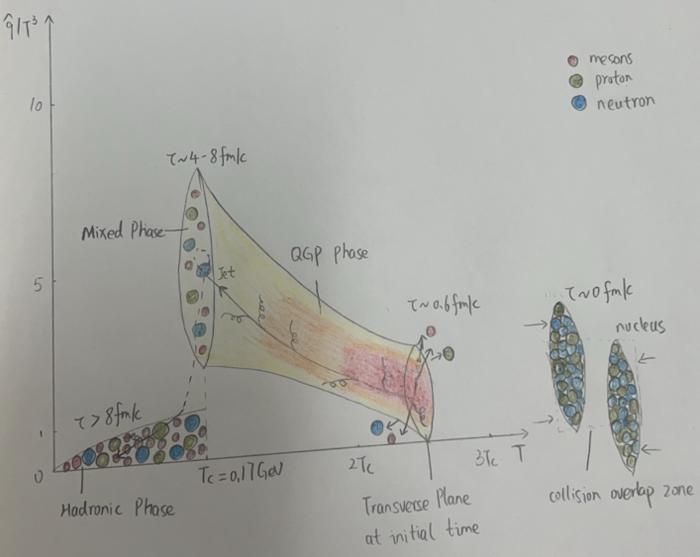In high-energy physics, researchers have unveiled how high-energy partons lose energy in nucleus-nucleus collisions, an essential process in studying quark-gluon plasma (QGP). This finding could enhance our knowledge of the early universe moments after the Big Bang.

Credit: Han-Zhong Zhang
In high-energy physics, researchers have unveiled how high-energy partons lose energy in nucleus-nucleus collisions, an essential process in studying quark-gluon plasma (QGP). This finding could enhance our knowledge of the early universe moments after the Big Bang.
Temperature Dependence in Jet Energy Loss
The study reveals that the jet transport coefficient over temperature cubed, a critical factor in parton energy loss in QGP, decreases with increasing medium temperature. This discovery, supported by a significant enhancement of the elliptic flow parameter (v2(pT)) for large transverse momentum (pT) hadrons, provides a more in-depth understanding of jet quenching in high-energy collisions.
Unveiling the Quark-Gluon Plasma
High-energy collisions create a hot, dense state of matter known as the QGP. As partons pass through this medium, they lose energy. This process, known as jet quenching, leads to the suppression of high pT hadrons, measured by the nuclear modification factor (RAA(pT)), and the azimuthal anisotropy, measured by the v2(pT).
Detailed Analytical Approach
The team used a next-to-leading-order perturbative QCD parton model to analyze data from the Relativistic Heavy-Ion Collider (RHIC) and the Large Hadron Collider (LHC). By fitting their models to the experimental data, they found that the jet transport coefficient’s scaled value (q^/T3) decreases with temperature. This novel approach provides a more accurate description of how jets lose energy in these extreme conditions.
The Impact
“This discovery helps us understand the behavior of partons in the quark-gluon plasma more accurately,” says Prof. Han-Zhong Zhang, the corresponding author. “It shows that partons lose more energy near the critical temperature, which could explain the enhanced azimuthal anisotropy observed in high-energy collisions.”
The findings suggest that as partons travel through the QGP, they lose more energy near the transition from QGP to hadron phase, strengthening the azimuthal anisotropy by approximately 10% at RHIC and LHC.
Next Steps
“In the future, we hope to refine our model and enrich the information on qˆ, allowing us to better describe RAA(pT) and v2(pT) simultaneously for both RHIC and LHC energies,” Prof. Zhang mentions their plans.
This study advances high-energy nuclear physics, providing deeper insights into jet energy loss in high-energy collisions. These findings could enhance our understanding of the quark-gluon plasma and pave the way for future research into the fundamental properties of matter under extreme conditions.
This research is a collaborative effort between South China Normal University and Central China Normal University.
Journal
Nuclear Science and Techniques
DOI
10.1007/s41365-024-01492-4
Method of Research
Computational simulation/modeling
Subject of Research
Not applicable
Article Title
The medium-temperature dependence of jet transport coefficient in high-energy nucleus–nucleus collisions
Article Publication Date
16-Jul-2024




